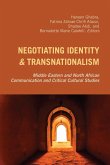This book explores social media as an alternative channel of communication and resistance in Pakistan, Tunisia and Egypt, and argues that the term "Arab Spring" limits the scope of acknowledgement for the ongoing online and offline political uprisings in the Muslim World, which started beyond the geographical boundaries of the Middle East. Beginning with an exploration of the pivotal role of Al Jazeera and how it used social media content from protestors to make the uprisings a global conversation, this book takes readers through an overview of creative political protests in each of the three case countries, before delving into an in-depth examination of a specific icon that sparked each revolution in question, and an overview of social movements and the politico-cultural context in each country. In closing, this book offers an understanding on how the new collective memories of nations using social media to protest will affect future generations who are striving to rise against authoritarian regimes, including the Algerian Spring that is ongoing in 2019.
This book can appeal to a wide range of audiences, both inside and outside the academic world. Within academia, courses covering topics such as social media, social movements, comparative politics, Middle Eastern studies and global communication could use this book as a learning tool. In non-academic settings, journalism practitioners could benefit from this book to examine how social media can be an alternate media in the absence of traditional media, and how traditional news media outlets can collaborate with and utilize social media to perform their journalistic duty in oppressive regimes.
This book can appeal to a wide range of audiences, both inside and outside the academic world. Within academia, courses covering topics such as social media, social movements, comparative politics, Middle Eastern studies and global communication could use this book as a learning tool. In non-academic settings, journalism practitioners could benefit from this book to examine how social media can be an alternate media in the absence of traditional media, and how traditional news media outlets can collaborate with and utilize social media to perform their journalistic duty in oppressive regimes.
Dieser Download kann aus rechtlichen Gründen nur mit Rechnungsadresse in A, D ausgeliefert werden.
"Rauf Arif's Movements for Change is a rare account of how the worlds of traditional media, politics, and policy-making revolutionize under the disruptions of interactive media venues, technologies and savvy user/producers. The book will be of interest to activists, journalists and political leaders alike because it delves behind the binary headlines of Pollyanna 'social media liberates the developing world' versus 'old authoritarians reassert control in the streets.' There is, indeed, much more to understand and appreciate about how large media organizations as well as ordinary concerned citizens are creating, distributing and using media content with political intent. Movements for Change is an insightful look behind the curtain and prophecy for the future."-David D. Perlmutter, Professor & Dean, College of Media & Communication, Texas Tech University









